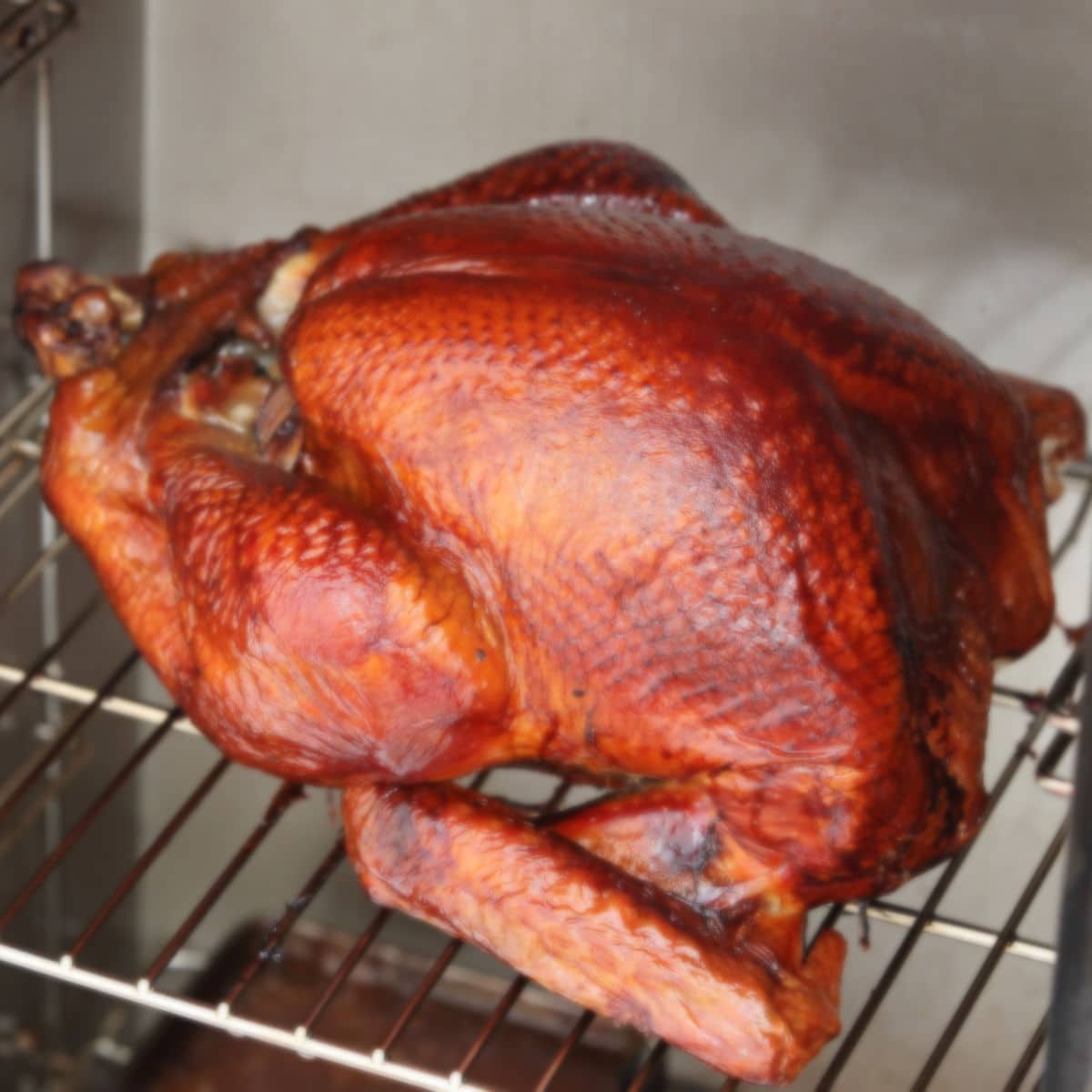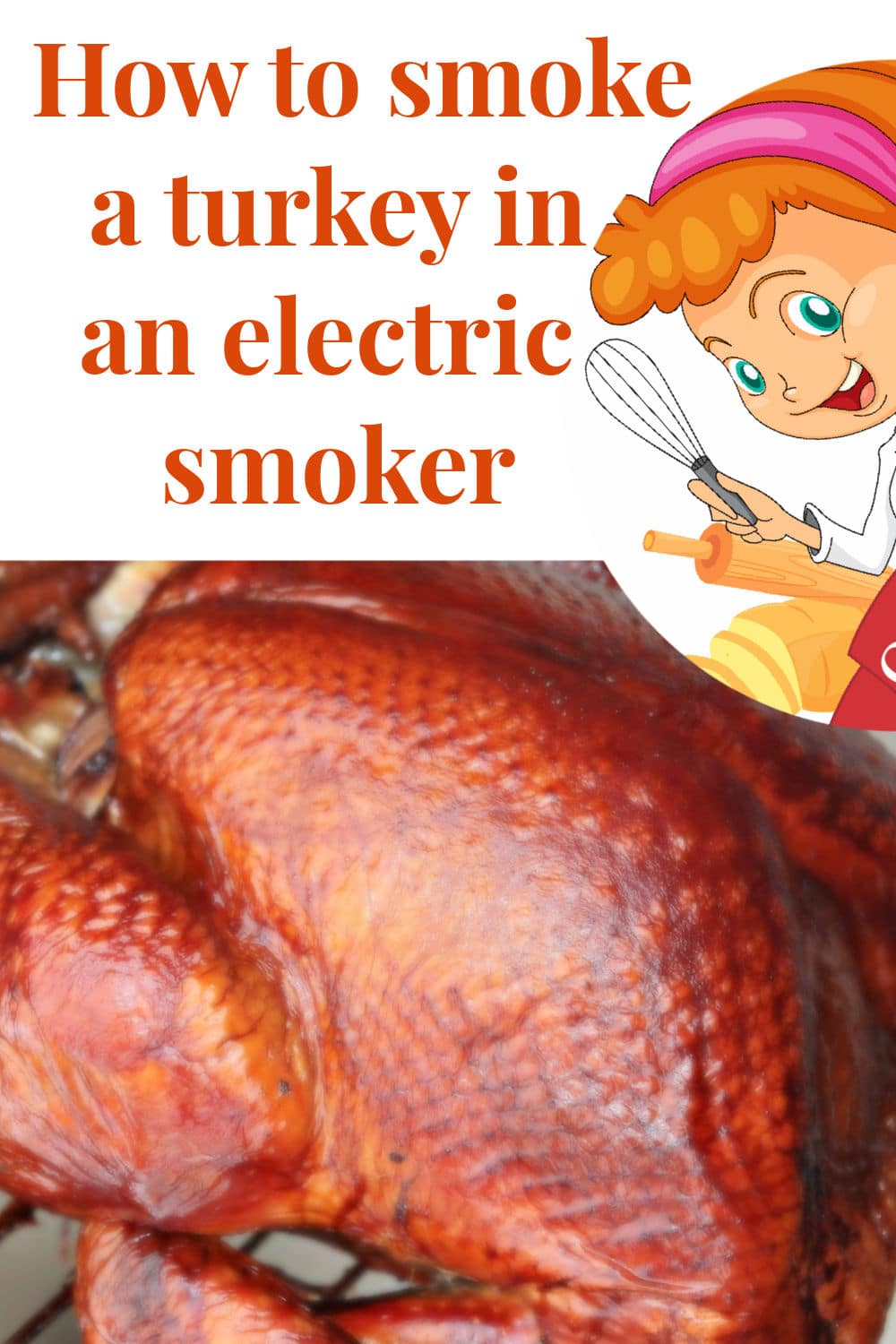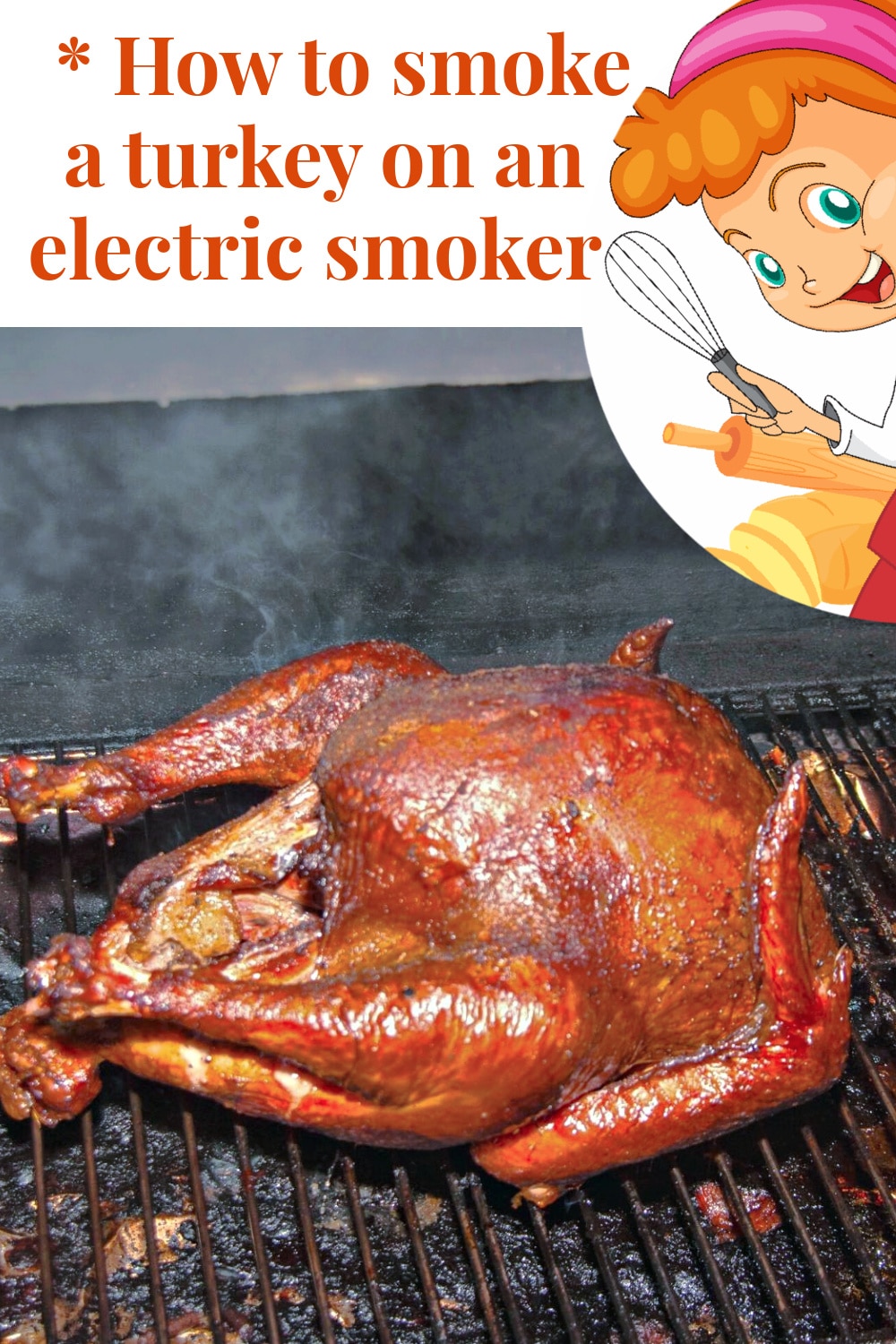Have you ever smoked a turkey? It can be a bit overwhelming the first time, but once you learn the right steps, it's not difficult at all.
Many people don't care for smoked turkey because maybe the turkey they had in the past was cooked too long and turned out dry. There is nothing worse than dry turkey. I promise that if you follow my directions, your turkey will me moist and fall off the bone tender.

Making your turkey in the smoker differs from using a charcoal grill, and your cooking time will also vary. The smoking process can also vary from one smoker to the next, which is why knowing your smoker is the first step.
How To Smoke A Turkey In An Electric Smoker
Smoking a turkey differs from cooking on a gas grill or baking it in the kitchen. Let's look at some guidelines.
1. Slow and steady wins the race
One of the most important things about preparing a really great smoked turkey is slow-cooking it so that it gets a chance to absorb the smoking flavor from the wood chips. The cooking process takes time to get a nice, crisp skin and smoky flavor without burning or having an undercooked middle.
You need to cook your turkey for about 30 minutes per pound at 250 degrees Fahrenheit or 121 degrees Celsius. This is again why knowing the weight of your turkey is important.
Keep your temperature as steady as possible for the juiciest turkey that is evenly cooked. And let's not forget your seasonings.
2. Spices to use for your smoked turkey
The right spices and herbs make all the difference in the flavor of your bird. There are no rules about which flavors to use on a Thanksgiving turkey, but some are more traditionally used than others. When you've chosen your spices, you'll want to create a good rub and apply it to the turkey before cooking.
While a rub isn't essential for a good smoked turkey, it can certainly help to make your turkey even more flavorful. Some people use brine or rub.
While there are rubs you can buy, it is even better to make your own specialty rub to make turkey uniquely your own. Some ingredients people use for a turkey rub include:
- salt or Kosher salt
- thyme
- rosemary
- oregano
- sage
- garlic powder
- onion powder
- smoked paprika
- ground black pepper
A rub made of salt, pepper, poultry seasoning, onion powder, and garlic will make a great tasting turkey.
If you prefer your smoked turkey a tad sweet, try making a rub of honey, garlic, onion, and a little soy sauce. Again, it's all about finding the flavor combinations you enjoy most.
3. Get under that turkey's skin
When applying the rub to your turkey, it is best to apply it well to the turkey underneath the skin, with a lighter coating on top of the skin. You want to be sure that the flavors stay in even when the turkey is slowly smoked.
To apply rub under the skin, start at the turkey’s bottom (butt) end, where the skin is loose, and work your fingers under the skin and up the chest to loosen the skin. And then loosen as much skin along the thighs and legs as possible.
Using your fingertips, apply the rub to your turkey under the skin and inside the cavity, and then apply a light coating on the outside of the skin.
You should apply the rub at least 1 to 3 hours before you begin smoking and set the meat in a disposable roasting pan in the refrigerator until you are ready to begin roasting.
4. Add liquid
When you use a water smoker, you will need to add liquid as part of the process. If your smoker has a place to add water, then you can fill the water pan about an inch from the top.
Hot water is better than cold. If your smoker doesn't have any place to add water, don't despair, you can add warm or hot turkey broth, cola, or even apple juice to the cavity of the turkey itself and a small amount in the bottom of the roaster.
Then every couple of hours you can use this liquid, which will become mixed with the turkey dripping to baste your bird.
5. Lightly tent your bird
For a moister turkey, try lightly tenting your bird with tin foil, leaving some space for the smoke to get through.
Then, you may want to remove the tent for the last two hours.
Do keep in mind, however, that since the turkey is cooking at such a low temperature, tenting is not really necessary; it just makes it a little moister.
6. Use the right wood chips
The last key ingredient you need when smoking a turkey is the right type of wood chips or wood chunks that you use.
Always use hardwood chips, never soft woods such as pine.
Turkey seems to come out extra flavorful if you use Hickory, oak, cherry, or apple wood chips, and make sure that the wood chips you use are seasoned.
7. Oven and meat thermometers
Even if your smoker ( best electric smokers) comes with a thermometer, you might want to invest in an oven or grill thermometer unless you know that your smoker thermometer is very accurate. You want to smoke your turkey at as close to the perfect temperature as possible.
You might also want to use a meat thermometer to ensure that your turkey is at the right temperature before removing it from the smoker.
The drippings at the bottom of the pan make a wonderful smokey gravy that is a perfect addition to your turkey dinner.
Last but not least, always try out your recipe at least once before cooking for guests so that you know if you need to adjust the temperature or the flavor profile before serving your turkey to your guests.
As you can see, smoking a turkey is not that hard once you learn some tips and tricks; they will make the entire process easier for you. Are there any turkey smoking tips that you'd add to our list? Let us know in the comments.
- How to defrost a turkey
- How to cook a turkey
- How to roast a turkey
- How to smoke turkey in a gas smoker
- How to make a turkey
- What to do with leftover turkey

Kathy acquired the blog, Recipe Idea Shop in 2024. She was raised on a farm in Arkansas where having a big garden and good food to eat was the norm. She shares recipes for homemade comfort food and new trending dishes.
Kathy began her blogging journey in 2011 when she founded PetticoatJunktion.com, a home décor blog focused on repurposing and upcycling furniture, and thrift store finds.



